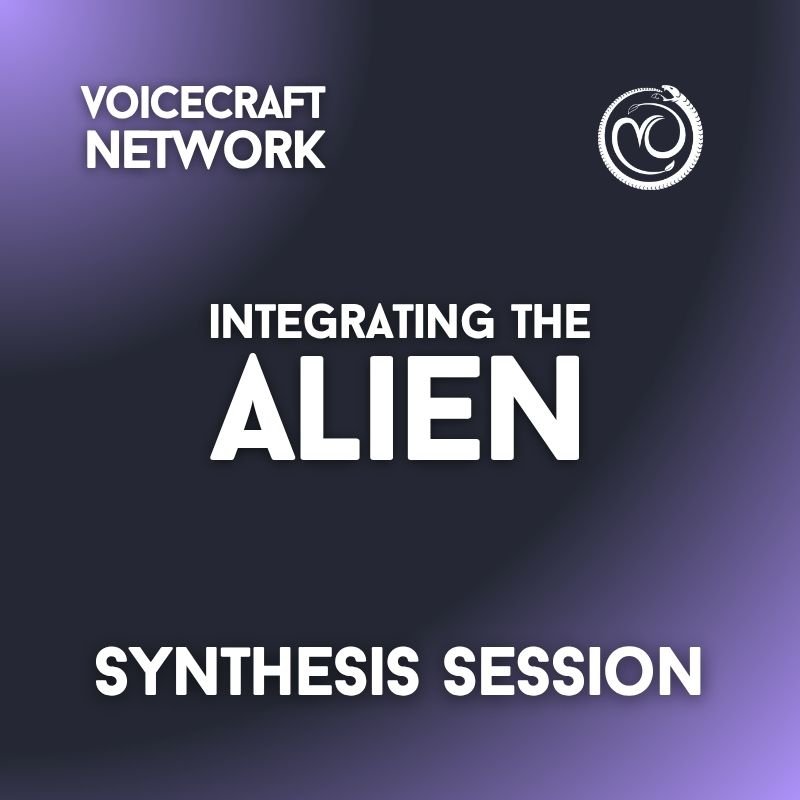E129| Influence, Value & Transhumanism: Questions for the frontiers of biology and technology w/ Dr Michael Levin
Dialoguing with the meanings of influence, value, transhumanism, minds, collective intelligence, and the philosophical and scientific implications of the pioneering work of Dr Michael Levin, a Distinguished Professor at Tufts University, working at the intersection of biology, computer science, and cognitive science.
-
The following show notes are generated by AI:
Opening & Framework Discussion
[00:00] - Introduction and opening question about influence and causation
[01:19] - Michael Levin's background and approach to philosophy in science
Day job at intersection of biology, computer science, and cognitive science
Criterion for philosophical frameworks: must facilitate discovery and progress
Importance of empirical engagement over theoretical allegiance
[03:46] - The TAME framework introduction
Technological Approach to Mind Everywhere
First-person vs third-person science
Both technological applications and self-understanding
The Spectrum of Persuadability
[05:54] - Defining mind, subjectivity, and the TAME approach
Strategy of grounding theoretical work in empirical progress
Focus on third-person science while acknowledging importance of subjectivity
[10:07] - The Spectrum of Persuadability explained
From mechanical clocks to thermostats to trainable systems to humans
Different interaction protocols for different levels of intelligence
All claims are interaction protocol claims, not ontological claims
[14:57] - Technology as interaction strategy
Not just physical gadgets but tools for mutual transformation
Right side of spectrum involves love, friendship, vulnerability
Engineering approach forces practical utility questions
Creation, Influence, and Novel Beings
[18:43] - Tim's question about creating novel beings and personal transformation
[24:09] - Michael's response: We don't create beings, we participate in their ingression
Recognizing unconventional minds already around us
Mind blindness - difficulty seeing intelligence in unfamiliar forms
Analogy to electromagnetic spectrum discovery
[26:24] - Cognition of cells and tissues
Using behavioral science tools on molecular networks
Biology as subset of cognition
Influence on future selves through time
[28:47] - Freedom of embodiment concept
Current limitations from random developmental processes
Intentional approach to future embodiment
Physical, mental, and spiritual transformation
Intelligence vs Cognition
[32:56] - Clarification on intelligence vs cognitive processes
Intelligence as subset of cognition (problem-solving capacity)
Cognition includes play, exploration, meaning-seeking
William James definition: reaching same goal through different means
Values and Intentionality
[36:34] - Discussion of improvement and intentionality
Not external standards but intentional agency
Fighting against being puppet of unknown forces
[38:24] - Tim's question about where values emerge in evolution
[39:31] - Michael's response: Values are primary, not emergent
Polycomputing - multiple observers interpreting same events differently
Choice of perspective as fundamental value expression
Continuous reconstruction of self-story from memory traces
Transhumanism and Human Enhancement
[45:51] - Tim's question about transhumanism vs hyperhumanism
Concerns about technology negating valued human capacities
[50:30] - Michael's defense of enhancement
Humans already are enhanced compared to ancestors
Need to specify where "optimal" human state would be
What do we actually value about being human?
[52:55] - The Cognitive Light Cone concept
Scale of largest goal you can work towards
From bacteria (microns) to dogs (yards) to humans (global, generational)
Transhumanism as expanding cone of compassion and cognition
[57:10] - Technology as tools for value realization
Including meditation, education, psychoanalysis
Responsibility to examine and act on our values
Metacognitive awareness of values and limitations
[58:54] - Final exchange about supporting vs narrowing technologies
[59:54] - Closing remarks
-
APPLE PODCASTS | OVERCAST | SPOTIFY | RSS | SOUNDCLOUD | GOOGLE PLAY | YOUTUBE
-
Dr. Michael Levin is an American developmental and synthetic biologist at Tufts University, where he is the Vannevar Bush Distinguished Professor, working at the intersection of biology, computer science, and cognitive science.
His groundbreaking research explores intelligence and problem-solving capabilities throughout biological systems, demonstrating that cognitive processes extend far beyond brains to include cellular networks and bioelectrical patterns that can be trained using behavioural science techniques.
His work bridges empirical discovery with deep philosophical questions about consciousness, agency, and "freedom of embodiment" - the intentional cultivation of our physical and cognitive capabilities. Levin's research has profound implications for cancer treatment, regenerative medicine, AI development, and recognizing intelligence in unexpected places throughout nature.
-
Tim is the founder of Voicecraft and a philosopher with a focus on the relation between participation and transformation. You can connect with Tim individually @ https://www.timadalin.xyz
-
Voicecraft conversations deepen how the world is known across themes of psyche, culture and nature.
The Voicecraft Project is comprised of a media & events platform, academy, and participatory membership network.
-
Listen on YouTube: https://www.youtube.com/embed/Qaj-stBL4W0
Support this project
This project is fuelled by support on Patreon and membership in the Voicecraft Network. If you appreciate the work, please consider becoming a Patron.
Go here for applications to the Voicecraft Network.
Or, make a one time donation using the button below.
Participate
You can learn about the Voicecraft Network here. If scheduled, below you’ll find a selection of online & in-person events which explore similar themes to the Voicecraft podcast, in the same spirit of participation.





















